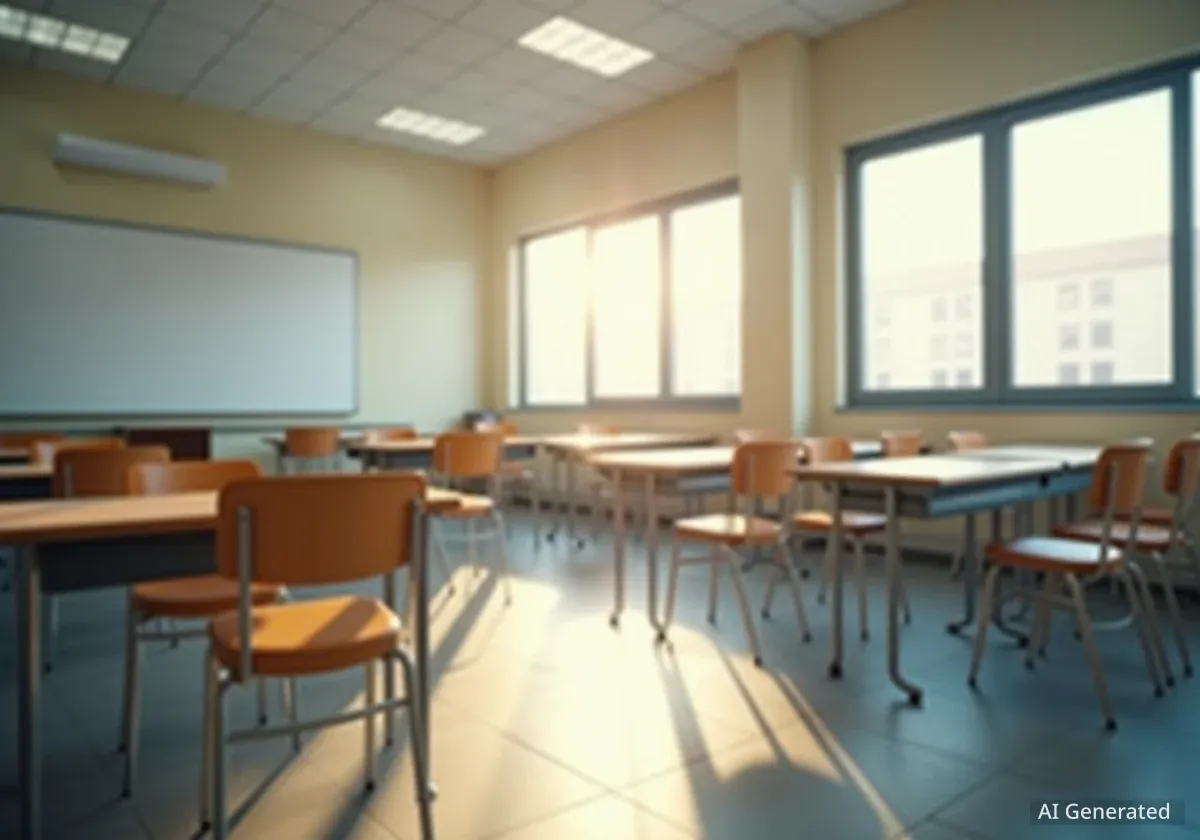A significant shift in leadership at Oklahoma's State Department of Education is prompting some teachers who left the profession to consider returning. Following the appointment of new state Superintendent Lindel Fields, educators across the state are expressing a renewed sense of optimism after a period of contentious relations between the previous administration and the teaching community.
The change in tone marks a stark contrast to the tenure of former Superintendent Ryan Walters, whose public statements often created friction with educators and teachers' unions. Now, many are watching closely to see how the new leadership will address long-standing issues like teacher shortages and classroom support.
Key Takeaways
- Lindel Fields has replaced Ryan Walters as Oklahoma's state superintendent, bringing a significant change in tone and approach.
- Some teachers who previously left their positions are now considering a return to the classroom due to the leadership change.
- Educators report a sense of relief and hope, citing the new superintendent's focus on supporting teachers.
- The previous administration's rhetoric, including calling teachers' unions a "terrorist organization," contributed to low morale and departures.
A New Direction for Oklahoma Education
Just weeks into his new role, state Superintendent Lindel Fields is signaling a major pivot in the state's approach to public education. His initial focus has been on mending relationships with teachers, a move that has been quickly noticed by educators who felt alienated by the previous leadership.
This change is already having a tangible impact. Sandra Valentine, a teacher from Shawnee, left her public school classroom in 2023. She cited the political climate as a primary reason for her departure.
"When you hear your profession and your colleagues denigrated, it takes a toll. It makes you question if you can continue in that environment," Valentine explained.
However, with Fields now in office, she is actively reconsidering her decision. Her sentiment reflects a broader feeling of cautious optimism spreading through Oklahoma's teaching community, which has faced significant challenges in recent years.
The Impact of Previous Rhetoric
The previous state superintendent, Ryan Walters, was known for his confrontational style. His public statements frequently targeted teachers and educational organizations, creating a divisive atmosphere. One of the most notable comments came when he referred to teachers' unions as a "terrorist organization."
Background on the Leadership Change
The transition from Ryan Walters to Lindel Fields was not the result of a standard election. It came after a shift in the political landscape and a re-evaluation of the leadership needed for the state's education system. Fields, a veteran educator with a long history in Oklahoma schools, was seen by many as a stabilizing force capable of rebuilding trust with teachers and administrators.
This type of language had a direct effect on teacher morale. For many, it was the final straw in a series of events that made them feel unsupported and undervalued. According to the Oklahoma Education Association, such rhetoric contributed to an already severe teacher shortage in the state.
Kristyn Erickson, a first-grade teacher in Norman, described the change under Fields as a "180-degree turn." She feels the new language surrounding educators is a welcome relief.
"That’s a breath of fresh air," Erickson said. "We’re excited to see what’s coming next. It feels like we can finally focus on the students again without the constant political battles."
Addressing the Teacher Shortage
Oklahoma has been grappling with a critical teacher shortage for nearly a decade. The problem is complex, with low pay, large class sizes, and a lack of resources often cited as key factors. The political environment has only made the situation worse, making it difficult to retain experienced educators and attract new ones.
Oklahoma's Teacher Shortage by the Numbers
According to data from the Oklahoma State Department of Education for the 2023-2024 school year, the state had over 3,000 teaching vacancies. This shortage disproportionately affects rural and low-income districts, impacting student learning and forcing schools to rely on long-term substitutes and emergency-certified staff.
Superintendent Fields has identified rebuilding the teacher pipeline as a top priority. His supporters believe his experience as a long-time Oklahoma educator gives him unique insight into the problem. His initial steps have involved direct outreach to teachers and administrators, listening to their concerns and promising a more collaborative approach.
Experts suggest that while a change in tone is a crucial first step, it must be followed by concrete policy actions. These could include:
- Increasing Teacher Pay: Ensuring compensation is competitive with neighboring states.
- Improving Working Conditions: Addressing class sizes and providing better classroom resources.
- Restoring Professional Respect: Valuing the expertise of educators in policy decisions.
- Streamlining Certification: Making it easier for qualified individuals to enter the teaching profession.
The coming months will be critical in determining whether the initial wave of optimism translates into measurable improvements in teacher retention and recruitment across Oklahoma.
Looking Ahead: A Cautious Optimism
While the mood among many Oklahoma teachers is positive, it is also tempered with caution. They have seen political winds shift before and are waiting to see if the new superintendent's supportive words will be backed by substantial changes in policy and funding.
For teachers like Sandra Valentine, the decision to return is not one she takes lightly. It will depend on seeing a sustained commitment to valuing educators and creating a stable, supportive environment for both teachers and students.
"It’s more than just words," Valentine stated. "We need to see that the system is truly changing for the better." The actions taken by Lindel Fields and the state legislature in the next year will ultimately determine if the current "breath of fresh air" can clear the storm clouds that have hung over Oklahoma's public schools for so long.





